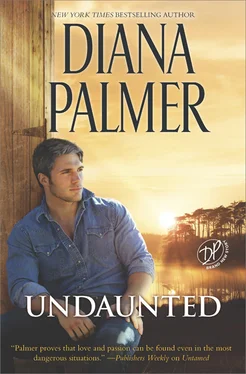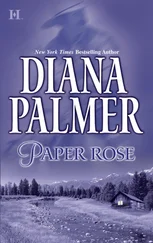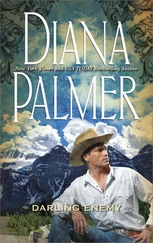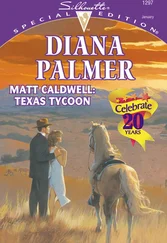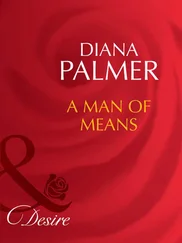“You’re always alone,” he said absently.
“So are you,” she blurted out, and then bit her tongue at her own forwardness.
Broad shoulders lifted and fell. “I got tired of bouncing soufflés, so I sent her home,” he said coolly.
She frowned, searching his face. He showed his age in a way that many older men didn’t. He pushed himself too hard. She knew without asking that he never took vacations, never celebrated holidays, that he carried work home every night and stayed on the phone until he was finally weary enough to sleep. Business was his whole life. He might have women in his life, but their influence ended at the bedroom door. And nobody got close, ever.
“Can you cook?” he asked suddenly.
“Of course.”
He raised an eyebrow.
“My father has a little cattle ranch in Texas,” she said hesitantly. “My mother died when I was only eight. I had to learn to cook.”
“At the age of eight?” he asked, surprised.
She nodded. Suddenly she felt cold and wrapped her arms around her body. “I was taught that hard work drives out frivolous thoughts.”
He scowled. “Any brothers, sisters?”
She shook her head.
“Just you and the rancher.”
She nodded. “He wanted a boy,” she blurted out. “He said girls were useless.”
His hands, stuffed in his pockets, clenched. He was getting a picture he didn’t like of her life. He didn’t want to know anything about her. He found her distasteful, irritating. He should turn around and go back to his lake house.
“You had a little girl with you a few days ago,” he said, startling her. “She was lost.”
She smiled slowly, and it changed her. Those soft brown eyes almost glowed. “She belongs to a friend of Mamie’s, a young woman from Provence who’s over here with her husband on a business trip. They’re staying at a friend’s cabin. The little girl wandered over here, looking for Mamie.”
“Provence? France?”
“Yes.”
“And do you speak French, cowgirl?” he asked.
“Je ne parle pas trés bien, mais, oui,” she replied.
He cocked his head, and for a few seconds, his pale eyes were less hostile. “You studied it in high school, I suppose?”
“Yes. We had to take a foreign language. I already spoke Spanish, so French was something new.”
“Spanish?”
“My father had several cowboys who were from Mexico. Immigrants,” he began, planning to mention that his grandfather was one.
“Their families were here before the first settlers made it to Texas,” she said, absently defending them.
His pale eyes narrowed. “I didn’t mean it that way. I was going to say that my grandfather was an immigrant.” He cocked his head. “You don’t like even the intimation of prejudice, do you?”
She shifted on her feet. “They were like family to me,” she said. “My father was hard as nails. He wouldn’t even give a man time off to go to a funeral.” She shifted again. “He said work came first, family second.”
“Charming,” he said and it was pure sarcasm.
“So all the affection I ever had was from people who worked for him.” She smiled, reminiscing. “Dolores cooked for the bunkhouse crew. She taught me to cook and sew, and she bought me the first dress I ever owned.” Her face hardened. “My father threw it away. He said it was trashy, like Dolores. I said she was the least trashy person I knew and he...” She swallowed. “The next day, she was gone. Just like that.”
He moved a step closer. “You hesitated. What did your father do?”
She bit her lower lip. “He said I deserved it...”
“What did he do?”
“He drew back his fist and knocked me down,” she said, lowering her face in shame. “Dolores’s husband saw it through the window. He came in to protect me. He knocked my father down. So my father fired Dolores and him. Because of me.”
He didn’t move closer, but she felt the anger emanating from him. “He would have found another reason for doing it,” he said after a minute.
“He didn’t like them being friendly to me.” She sighed. “I felt so bad. They had kids who were in school with me, and the kids had to go to another school where Pablo found work. Dolores tried to write to me, but my father tore up the letter and burned it, so I couldn’t even see the return address.”
“You should have gone with them,” he said flatly.
She smiled sadly. “I tried to. He locked me in my room.” She looked up with soft, sad eyes. “Mamie reminds me of Dolores. She has a kind heart, too.”
There was an odd vibrating sound. She frowned, looking around.
He held up the cell phone he’d kept in his pocket. He glared at it, turned the vibrate function off and put it back in his pocket. “If I answer it, there’s a crisis I have to solve. If I don’t answer it, there will be two crises that cost me a small fortune because I didn’t answer it.”
“I don’t even own a cell phone,” she said absently. It was true—Mamie paid for hers.
How would she pay for one, he almost said out loud. But he didn’t want to hurt her. Life had done a good job of that, from what he’d heard.
He nodded toward the sky. “It will be dark soon,” he said. “You shouldn’t be out alone at night.”
She managed a smile. “That’s what Mamie says. I’m going in.”
She turned, a little reluctantly, because he wasn’t quite the ogre she thought he was.
All the way down the path, she felt his eyes on her. But he didn’t say another word.
Two
Emma wondered about Connor Sinclair. She was curious why he was so angry, because she saw it in him, felt it in him. She didn’t want to think about him so much. He disturbed her, fascinated her, in ways she didn’t understand. Probably, it was because he was so hostile toward her. It had to be that.
Tired of the lake house, she walked to the marina and got into Mamie’s speedboat. Nobody saw her leave, but then, she had the key and she could come and go whenever she wanted to.
It was a beautiful early October morning. All around the lake, mostly trimmed with pine trees, a few hardwoods were beginning to show their lovely fall colors. The leaves turned more slowly here, in the foothills of the Appalachian Mountains. Up in North Carolina, people said, the leaf season was in full swing, attracting tourists from all over the piedmont. Around the North Georgia lake where Mamie’s house was situated, the maples were going to be glorious in their reds and golds. This was Emma’s favorite season. She loved the bright beginnings of the season, the many different shades that combined to turn the whole world bright and new in its last feverish gasp before winter.
She turned the boat toward the wide-open part of the lake and revved it up. She laughed as the wind blew her hair back, bit into her face, made her feel alive and young, as if the whole world was hers.
The sun was low on the horizon, making a bright trail in the water as she whirled the boat and sent it spinning toward the distant shoreline. It was so early that nobody was on the lake. She had it all to herself. She could step on the gas and never have to worry—
There was a horrible scraping sound, a horrible jolt that shook the boat and Emma.
“Damn it!”
The angry curse came out of nowhere, like the Jet Ski that she hadn’t seen in the brilliance of the morning sun that blinded her for just a few seconds.
She let off the gas, shaking from the collision and fear of what she’d done. She stood up in the boat, her eyes searching the water around her. There was a Jet Ski on the side of the boat toward the small cove.
“Oh, no, oh, no!” she cried. “I’m sorry!”
There was no answer. The Jet Ski revved and headed toward the distant dock. She knew at once whom she’d hit, and her blood froze. But he seemed to be all right. He got to the dock, and climbed off the Jet Ski. He sat there, seemingly disoriented, and called to someone.
Читать дальше
